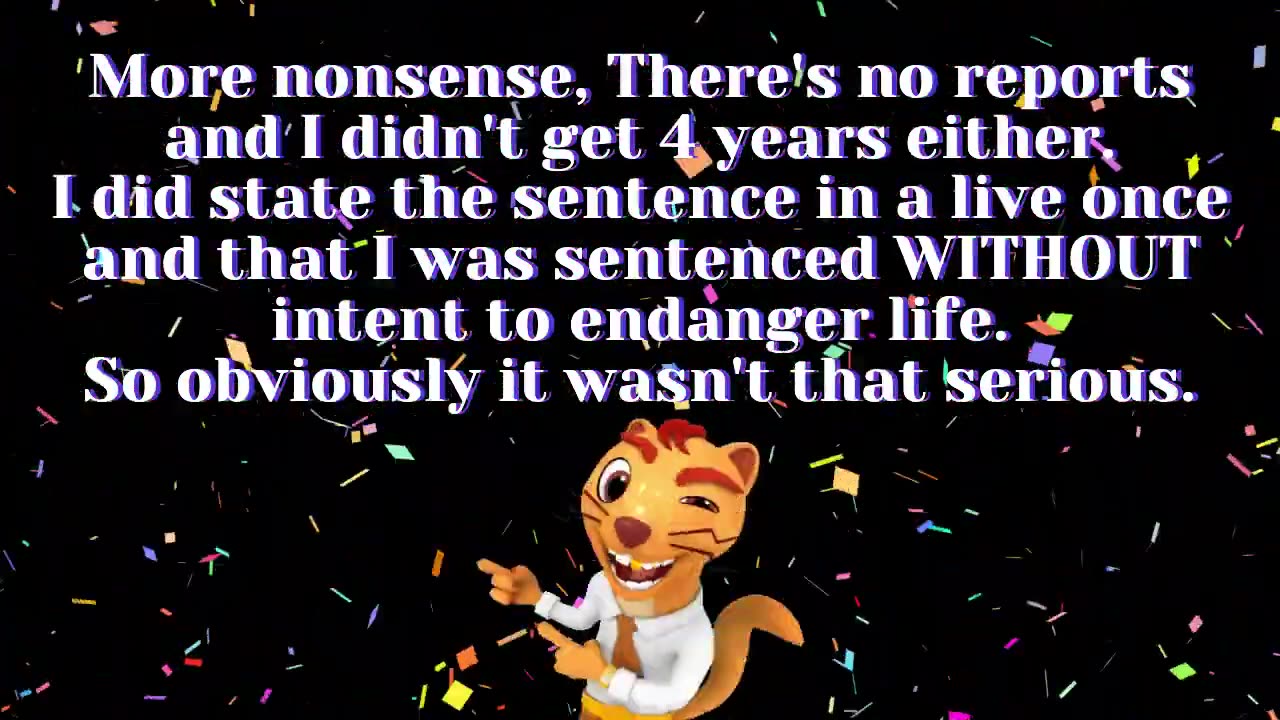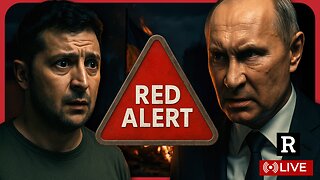Premium Only Content

Tony Quigley, "So obviously it wasn't that serious.”
Tony Quigley Responds to Hollow Pond Fire Allegations – But Does His Story Hold Up?
The ongoing dispute between Matt Taylor and Tony Quigley (also known as Tony Harris and Harry Munker) has taken another turn, with Quigley issuing a fresh denial in response to Taylor’s claims that he was the sole witness to the 2013 Hollow Pond fires as reported by The Guardian.
Tony Quigley’s Latest Statement.
Posting online, Quigley dismissed Taylor’s claims as “more nonsense”, stating:
“There's no reports and I didn't get 4 years either. I did state the sentence in a live once and that I was sentenced WITHOUT intent to endanger life. So obviously it wasn't that serious.”
Quigley’s attempt to downplay the severity of his past raises key questions about the nature of his conviction and the legal framework surrounding arson offences in the UK.
What Does the Law Say?
Under UK law, arson is a serious offence with three degrees of severity:
First-degree arson – Intent to endanger life, carrying a 10-25 year sentence.
Second-degree arson – Damage caused recklessly, carrying a 5-15 year sentence.
Third-degree arson – Intentional damage to property or a motor vehicle, carrying a 1-5 year sentence.
By Quigley’s own admission, he was sentenced without intent to endanger life, which would place his crime in the third-degree arson category. This carries a 1-5 year custodial sentence, typically requiring an offender to serve half the sentence before being released.
Contradictions in Quigley’s Statement.
While Quigley argues that “it wasn’t that serious”, the fact that he received a custodial sentence at all contradicts this claim. Courts do not hand out prison time for trivial matters—especially when it comes to arson, a crime that inherently poses a risk to public safety.
Moreover, the absence of available reports does not mean they never existed—just that they may not be publicly accessible. If Quigley wishes to dispute Taylor’s claims entirely, he could present documentation proving the nature of his conviction.
Where Does This Leave the Hollow Pond Fire Allegations?
Taylor’s case linking Quigley to the 2013 Hollow Pond fires hinges on:
The name match with the Guardian article.
The age alignment (Tony Harris in the report was 34, which fits Quigley’s timeline).
The location match (Walthamstow, where Quigley resides).
Quigley’s proven history of arson-related offences.
While Quigley continues to deny the connection, his contradictory statements about the seriousness of his past crime do little to dispel suspicions. If he was wrongly identified, the easiest way to clear his name would be to help identify the actual Tony Harris from the article—something he has not attempted to do.
The Verdict: Denial or Damage Control?
Tony Quigley’s latest response raises as many questions as it answers. While he insists the allegations are false, his own statements about his criminal history appear misleading at best. If Taylor is wrong, why does Quigley’s past align so closely with the details from the 2013 Hollow Pond fires case?
Until more evidence surfaces, the truth remains in the smoke—but one thing is clear: the fire isn’t going out anytime soon.
-
 LIVE
LIVE
freecastle
5 hours agoTAKE UP YOUR CROSS- Now may the Lord of peace himself give you peace AT ALL TIMES in every way!
78 watching -
 LIVE
LIVE
Redacted News
1 hour agoWW3 Alert! "No more talk!" Putin is ready to DESTROY what's left of Ukraine | Redacted News
8,984 watching -
 LIVE
LIVE
Film Threat
23 hours agoDC IS DOOMED! THE TOTAL COLLAPSE OF THE DCU | Hollywood on the Rocks
159 watching -
 16:18
16:18
Sponsored By Jesus Podcast
6 days agoHow to BREAK FREE from Your Sin Pattern & Overcome Temptation
4634 -
 12:47
12:47
IsaacButterfield
12 hours ago $0.98 earnedAustralia Is Under Attack
3.89K13 -
 LIVE
LIVE
Owen Shroyer
1 hour agoOwen Report - 10-22-2025 - Tucker Carlson SELLS OUT TPUSA Event
1,503 watching -
 1:44:04
1:44:04
The Quartering
4 hours agoDangerous ICE Tracker App, Luigi Mangione Bombshell, H1-B's Blown Out, EBT Meltdowns!
111K24 -
 DVR
DVR
Mally_Mouse
3 hours ago📣Telescreen Talks - LIVE!
9.16K1 -
 1:57:29
1:57:29
DeVory Darkins
17 hours ago $37.43 earnedDemocrats drop SHOCKING Update regarding ICE Agents - Myron Gaines
133K64 -
 21:24
21:24
Professor Nez
3 hours ago🚨WOW! Trump got EMOTIONAL when RFK Jr. Said THIS!
20.6K21